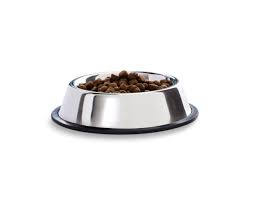
Diet is incredibly important for senior cats for several reasons:
Maintaining a Healthy Weight: As cats age, they become less active and their metabolism slows down. This increases their risk of obesity, which can lead to serious health problems like arthritis, diabetes, and heart disease. A properly balanced diet helps maintain a healthy weight and reduces these risks.
Supporting Aging Systems: Senior cats experience age-related changes in their organs and bodily functions. A senior cat food is specially formulated to provide the necessary nutrients to support these changes, such as:
Higher Protein: Helps maintain muscle mass, which declines with age.
Reduced Calories: Helps prevent weight gain.
Supplements: May include antioxidants, glucosamine, and chondroitin to support joint health and the immune system.
This is for informational purposes only. For medical advice or diagnosis, consult a professional.
Key Considerations for Senior Cat Food:
Reduced Calories: Senior cats are less active, so they need fewer calories to avoid weight gain.
Increased Protein: Maintaining muscle mass is crucial for older cats. High-quality protein sources help them stay strong.
Healthy Fats: Essential fatty acids support brain function and skin/coat health.
Optimized Nutrient Levels: Senior formulas are specifically designed to meet the changing needs of older cats, such as:
Kidney Support: Reduced phosphorus and sodium can help protect kidney function.
Joint Health: Glucosamine and chondroitin may help support joint cartilage.
Cognitive Health: Some formulas include antioxidants and specific nutrients to support brain function.
Digestibility: Easier-to-digest ingredients can help with sensitive stomachs.
Recommended Brands (Consult Your Vet):
Hill’s Science Diet Senior: A popular choice with various formulas for different needs.
Royal Canin Senior: Offers specific formulas for indoor, overweight, and other senior cat needs.
Purina Pro Plan Senior: Provides complete and balanced nutrition for older cats.
Blue Buffalo Senior: Focuses on natural ingredients and often includes added supplements.
Important Notes:
Individual Needs: The best food for your senior cat will depend on their specific health conditions, activity level, and preferences.
Veterinarian Consultation: Always consult your veterinarian for personalized recommendations. They can assess your cat’s health and recommend the most appropriate food.
Gradual Transition: When switching foods, transition gradually over 7–10 days to avoid digestive upset.
Fresh Water: Always provide plenty of fresh, clean water.
Beyond Commercial Food:
Wet Food: Adding wet food to your senior cat’s diet can increase water intake and make meals more appealing.
Homemade Options: With a veterinarian’s guidance, you can consider homemade diets for senior cats.
I hope this information helps! Remember to consult your veterinarian for the best advice tailored to your senior cat’s specific needs.